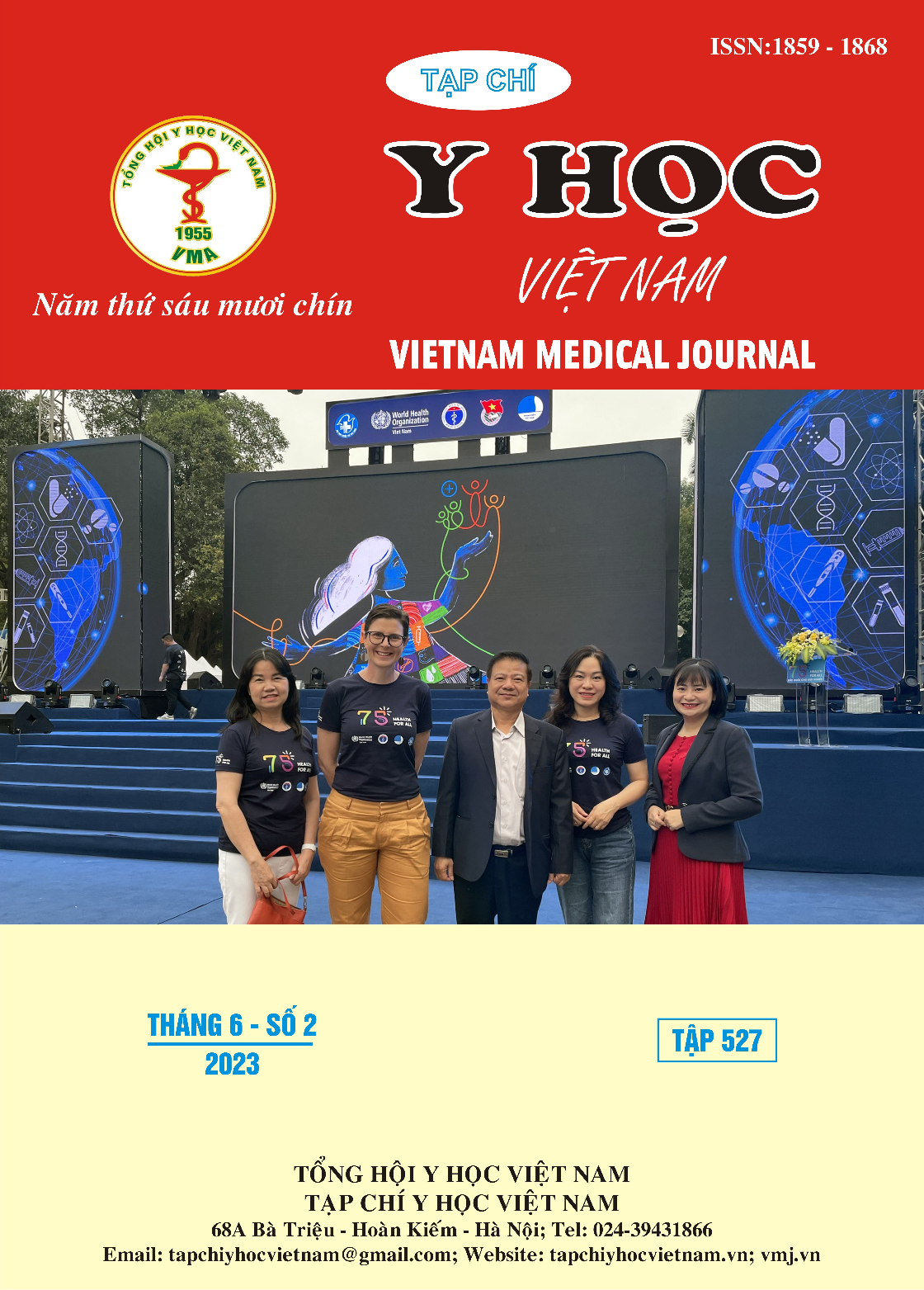ANALYSIS OF DRUG-RELATED PROBLEMS IN PRESCRIBING ANTI-CANCER DRUGS AT A SPECIALIZED ONCOLOGY HOSPITAL
Main Article Content
Abstract
Objective: To determine the frequency and types of drug-related problems (DRPs) related to prescribing of anti-cancer drugs. Subject and method: A cross-sectional descriptive study was conducted among inpatients who were diagnosed with 1 of the 5 most common cancers in Vietnam at a specialized oncology hospital and were discharged between June 1st 2022 and June 15th 2022. Clinical pharmacist reviewed the cycles of anti-cancer drug to identify DRPs with standard protocols in the literature, then classified them according to the Ministry of Health guidance at Decision 3547/QĐ-BYT. Results: A total of 2236 DRPs were detected in 791 cycles out of 1027 treatment cycles (77.0%). The most prevalent DRPs were dosing problems (31.7%). Drug selection accounted for 30.4%, most of which were inappropriate route/dosing forms (20.1%). The DRPs related to treatment duration and incomplete prescription information accounted for similar proportions (19.2% and 18.7% respectively). DRPs related to FOLFOX and Oxaliplatin - Capecitabin/UFT protocol accounted for the highest proportions (17.1% and 15.2% respectively); the majority of DRPs were related to chemotherapy drugs (91.4%). Conclusion: DRPs involving anti-cancer drug prescribing and selection were considerably common. Further studies are needed to determine the extent of the clinical impact of DRPs, and appropriate interventions should be carried out to minimize DRPs in patients using cancer drugs.
Article Details
Keywords
Drug-related problems, prescriptions, cancer drugs.
References
2. Hoàng Thị Phương (2022), Phân tích một số vấn đề liên quan đến thuốc ung thư tại khoa Phụ Ung thư - Bệnh viện Phụ sản Trung ương, Luận văn thạc sỹ Dược học, trường đại học Dược Hà Nội.
3. Nguyễn Lê Trang (2017), Phân tích các vấn đề liên quan đến sử dụng thuốc tại khoa Ung bướu bệnh viện Vinmec Times City thông qua hoạt động dược lâm sàng, Luận văn thạc sỹ Dược học, trường Đại học Dược Hà Nội.
4. Cehajic I., Bergan S., et al. (2015), "Pharmacist assessment of drug-related problems on an oncology ward", European journal of hospital pharmacy, pp. 1-4.
5. Degu A., Njogu P., et al. (2017), "Assessment of drug therapy problems among patients with cervical cancer at Kenyatta National Hospital, Kenya", Gynecologic Oncology Research and Practice.
6. Glimelius B., Jakobsen A., et al. (1998), "Bolus injection (2-4 min) versus short-term (10-20 min) infusion of 5-fluorouracil in patients with advanced colorectal cancer: a prospective randomised trial. Nordic Gastrointestinal Tumour Adjuvant Therapy Group", Eur J Cancer, 34(5), pp. 674-8.
7. Pharmaceutical Care Network Europe Foundation (2020), "PCNE classification for drug related problems V9.1".
8. Tamura Takao., Kuwahara Akiko., et al. (2011), "Effects of bolus injection of 5- fluorouracil on steady-state plasma concentrations of 5-fluorouracil in Japanese patients with advanced colorectal cancer", International journal of medical sciences, 8(5), pp. 406.


